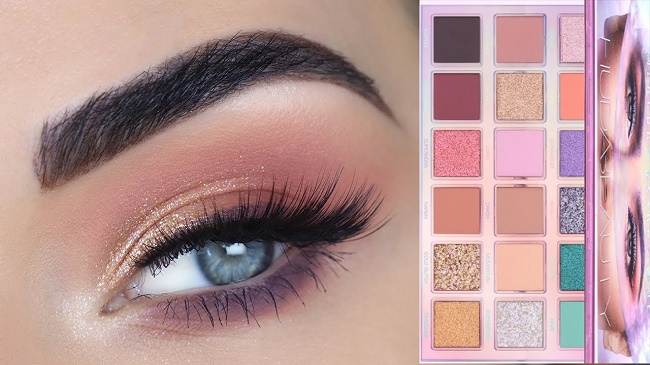Environmental health organisations from the Philippines are asking governments across the world to end a partial exemption on mercury use for eye area cosmetics such as mascaras under the Minamata Convention on Mercury.

As it stands, only cosmetics such as skin lightening creams and soaps with mercury content above one part per million (ppm) have been targeted for global phase-out in 2020 under the mercury treaty.
Partially exempted from the complete phase-out in 2020 are eye area cosmetics where mercury is used as a preservative and no effective and safe substitute preservatives are available.
“The data on mercury content of mascaras sold in the Philippines and other countries provide a good basis to rescind the phase-out exemption for such mercury-added products under the Minamata Convention. We will urge our government to take note of our findings and seek the necessary treaty amendment,” said Aileen Lucero, National Coordinator, EcoWaste Coalition.
Atty. Mark Peñalver, Executive Director, Interfacing Development Interventions for Sustainability (IDIS) noted that “removing the treaty exemption will make intentionally added mercury in eye area cosmetics a thing of the past,” emphasizing “it’s high time for all cosmetics to go mercury-free.”
Added Dr. Won Kim, Director, Wonjin Institute for Occupational and Environmental Health (WIOEH): “It’s a very frustrating situation for experts to detect hazardous chemicals, such as mercury, in cosmetics. Toxic chemicals used in cosmetics must be substituted with safer alternatives.”
“It is great news that NGOs have been monitoring mercury in mascara and found that the industry has largely phased it out and used substitute preservatives,” said Lee Bell, Mercury and POPs Advisor, International Pollutants Elimination Network (IPEN). “Having an exemption in the Minamata Convention for this use is problematic as it sends a signal that toxic mercury in cosmetics should be tolerated. It’s past time to end this exemption and strengthen the convention to rid cosmetics with mercury once and for all.”
As part of the Cosmetics Without Harm project led by the WIOEH and supported by the Korean non-profit Beautiful Foundation, 57 samples of mascaras were collected by seven IPEN member organizations from six countries, including the Philippines.
Laboratory researchers at the Soon Chun Hyang University performed the tests using a Direct Mercury Analyzer (DMA), an instrument used to quantify total mercury content present on a sample.
For the 20 samples collected by the EcoWaste Coalition and IDIS, the concentrations of mercury detected range from 0.0021 to 0.0392 ppm, way below the 1 ppm maximum limit for mercury in cosmetics under the Minamata Convention on Mercury and pertinent regulations like the ASEAN Cosmetic Directive.
Among the products collected from licensed business establishments, as well as informal retailers, in Davao, Makati and Pasay Cities and sent to WIOEH for mercury analysis were Ashley, Beauty Model, Ever Bilena (3), Happy Skin, Hengfang, IN2IT, Kiss Beauty, L’Oreal, Mascara Volumizer, Maybelline (2), Miniso, Nichido, Shawill, Shudabeauty, Spotlight, Vice, and Y.O.U.
The said mascara products were manufactured in China, Taiwan, Thailand, South Korea and the USA.
According to a report by an ad hoc group of experts tasked to review Annexes A and B of the Minamata Convention, some manufacturers have switched from mercury-based thiomersal to mercury-free preservatives. Others have resorted to sterilisation and replacement of water with a gelled substitute as an alternative to preservatives.
Mercury, a potent neurotoxin, is highly toxic to human health. Exposure to mercury can harm multiple organs of the body, especially the developing brain of the foetus at extremely low concentrations. Women, who are the main target of mercury-added cosmetics, are among the most vulnerable to its toxic effects, particularly if they are of childbearing age.
